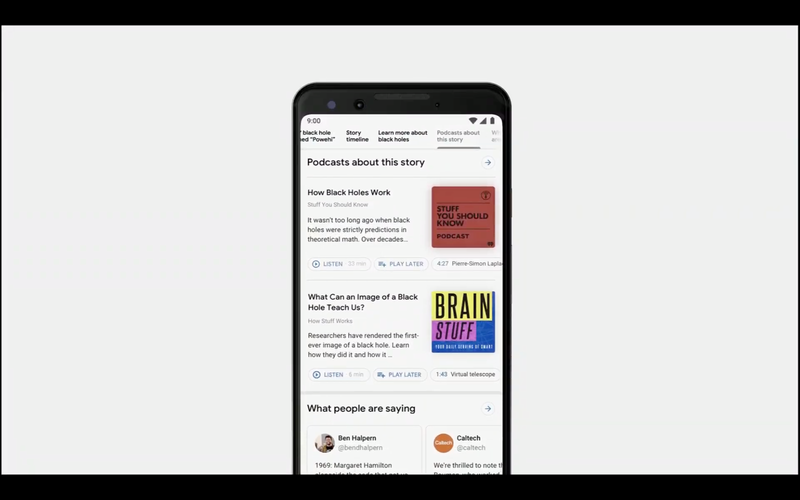Applying good podcast SEO is a great way to increase your podcast’s visibility and grow your audience organically. For most people, SEO (Search Engine Optimization) may sound intimidating and complicated. We’re here to help! When it comes to growing your podcast, it’s actually not as difficult as you may think…
How Does SEO Work for Podcasts?
Simply put, SEO is about helping search engines (of any kind) find your quality content and share it with its users. Among these search engines is Google, of course; but remember that even Apple Podcasts, Spotify, and others each have their own search feature. SEO for Podcasting is about optimizing your content so that it can be easily found by those who want to find it!
In this guide, we’re going to distinguish between two different areas: SEO for your podcast and SEO for your podcast episodes. These may sound similar, but they’re entirely different ways for your podcast to be discovered.
For example, let’s say you have a podcast on knitting. Someone who’s a knitting enthusiast might search for “podcasts about knitting” on Google or a podcast service and find your podcast. But maybe there’s another person who searches for “how to knit a scarf”. They wouldn’t necessarily see your podcast as a search result but, if you’ve recorded a podcast episode called “Knitting a Scarf 101” (and have good SEO), there’s a good chance of that specific episode turning up in search results.
The Google Update – Indexing Podcasts
Being able to apply SEO to your specific episodes is a fairly recent development made possible by a 2019 update by Google. Now, when you do a Google search for a specific podcast, you’ll not only find their website in your search results but also a playable list of recent episodes.
And, if that wasn’t enough, Google Podcasts now has the technology to “listen” to your podcast episodes to find out exactly what they are about. This means that a Google search could display a single episode of your podcast based on the content of that specific episode. At the Google I/O developer conference back in May 2019, they used the example of a Google search for “black holes,” which returned matching podcast episodes like “How Black Holes Work” from the Stuff You Should Know podcast.
This is a game changer. It means someone could discover your podcast, even if they’d never heard of your podcast before that moment!

As you can imagine, these changes absolutely affect the way that you need to manage your podcast SEO. And, thanks to our handy beginner’s guide, you don’t even need to be an expert to get it right. Here are our best practices for podcast SEO.
Podcast SEO Best Practices
SEO for Your Podcast Itself
The goal of this section is to help anyone looking for a podcast on such-and-such topic find your podcast. Let’s jump in:
1. Determine Your Focus Keyword
What is the overarching topic keyword for your podcast? In other words, what is the keyword that you imagine people will be searching for when they come across your podcast for the first time? It could be digital marketing, nutrition, tech, etc.
If your industry is already heavily saturated with podcasts about a certain topic, consider going for a more niche keyword. For example, instead of “digital marketing,” use the keyword “social media marketing,” or instead of “health foods,” use “Paleo Diet.”
Now, let’s look at how to apply your keyword phrase…
2. Optimize Your Podcast Title
If you’re just starting your podcast, take this opportunity to jump off on the right foot. Yes, you want a title that’s creative and fun, but you also want it to be abundantly clear what your podcast is actually about.
Pro tip: Already have an established podcast whose title is… well, a little murky? Try adding a subtitle! For example, if you were running a Game of Thrones podcast called “The World of Westeros,” you could tack on something like “An Unofficial Guide to the Game of Thrones” as a subtitle, in order to make your subject clear.
3. Optimize Podcast Description
When it comes to SEO, metadata is always essential because it provides additional details and context. For podcast SEO, this is especially useful for searches directly in podcast platform searches, such as Apple Podcasts, Spotify, etc. In your description, use your main keyword word-for-word at least once.
By including your main keyword in your podcast’s description, utilizing tags, and optimizing your podcast’s title (as we discussed in #2), you can help people discover your podcast more easily on various platforms.
Unfortunately, the search optimization in these platforms is limited. But there’s plenty you can do to get discovered on Google, as well…
4. Set Up a Website
If you already have a podcast but don’t yet have a website for that podcast, it’s time to fix that. It’s always been a good idea to have a podcast site, but now it’s really non-negotiable.
A website offers various benefits for allowing you to grow your audience, such as offering an email opt-in. But having a website can also help your podcast’s SEO. It’s easier for Google to index your podcast when you can provide content on your site related to your podcast’s niche.
Pro tip: Open a Wavve Link account! This tool gives you your own mini-website that links to each podcasting platform, allowing your audience to listen on their preferred platform with just one click. It also automatically syncs your latest episode, so your website is constantly up-to-date. Plus, it’s free to claim your Wavve Link when you sign up for an account!
5. Convert Your Podcast Episodes Into a Blog Post
Publish a transcript of each episode on your podcast’s blog each time you release a new episode. Make sure to also provide a link back to the actual episode, or embed an animated soundbite like this.
Blogging accomplishes two things for your podcast. First, it helps boost the authority of your website on a certain topic. As you are producing consistent written content about your niche, it helps Google understand what your website–and by association, your podcast–is about. And, the more quality content you have, the more you increase your authority on that subject matter. So, when someone searches “podcast about [your niche]” Google is much more likely to recommend your podcast above others.
Second, it gives potential listeners an opportunity to find your episodes through a different medium and allows you to recycle your content that you worked so hard to produce. Recycling content in this way can boost your website’s authority and raise your search engine rankings, all while using content you’ve already created!
To create a transcript to convert into a post, check out Duplikit, which automatically turns your podcast into a blog ready format. Even though Google is now transcribing your episodes in the background, it’s far from a perfect system. The best way to have a legitimate, error-free transcript of your show is to generate one that you can edit yourself. An accurate transcript is going to contain that keyword-rich content, making it more easily discoverable by search engines.
Pro tip: If you’re using WordPress to blog, try out the Yoast SEO plugin! It’s the #1 WordPress SEO plugin, and it can help with your blog SEO.
SEO for Individual Podcast Episodes
Now let’s talk about how you can optimize your podcast’s individual episodes to be found in search engine results, like Google:
1. Determine Your Episode Keywords
When it comes to SEO, keywords are essential. Now that Google returns individual episodes in search results, it’s even more important to be intentional about each episode’s keyword.
Make sure that you choose a focus keyword for each episode you produce. And don’t just use the same one over and over again across multiple episodes. Even if they’re thematically similar, it’s crucial that each episode focus on a different keyword to further your reach.
Pro Tip: Ideally, you should try to choose keyword phrases that people are already searching for. Use tools like Google Keyword Planner to research these “high density” keywords. Also, you may want to look at the episode titles of other podcasters in your niche. If you can identify frequently searched keywords that aren’t yet being used by other podcasters, you will be able to get ahead of the curve. The lower the competition, the higher chance that your episodes will rank for that keyword.
2. Optimize Your Episode Titles and Descriptions
Just like we optimized your podcast title and description, you also need to pay attention to your episode titles and descriptions.
For each episode, your episode’s keyword phrase should be prominently featured in your episode title. Your episode titles should always be unambiguous and descriptive to give interested audiences the highest chance of finding (and actually listening to) your episode. The other place your main keyword should be mentioned is in the episode description. Be sure to use your main keyword word-for-word in both places.
Pro tip:Always try to put your keywords as close to the beginning of the episode description as possible. People have low attention spans, and if they don’t see what they’re searching for almost immediately, there’s a good chance they’ll simply bounce away to a different result.
3. Say Your Exact Keyword Phrase in the Recording
As we mentioned previously, the updates to the Google algorithm that include “listening in” on your podcast episodes is still very new, and we are slowly learning more about how this actually works. But it feels safe to assume that they’ll use the same (or similar) technology as YouTube uses to “listen” for keywords in videos.
If you don’t say your keyword phrase in your podcast episode, it probably won’t matter if all of your on-page metadata (like episode descriptions, titles, tags, etc.) uses that keyword. So just make sure you say your target keyword word-for-word at least once throughout the episode.
Be sure to avoid “keyword stuffing” (saying the word over and over again to the point that it doesn’t sound natural). This is a practice that Google frowns upon it. Instead, use your main keyword only a handful of times, then focus on using synonyms to that keyword throughout the episode.
4. Get on Google Podcasts
If you haven’t already, it’s now officially time to add your podcast to Google Podcasts. With the release of this new search engine development, the easiest way to improve your podcast SEO is to make your podcast available on Google’s native podcast player. It will allow your episodes to show up as audio snippets in search results and allows you to monitor your rankings.
5. Promote on Social Media
People don’t always think of social media as being linked with SEO. But it is. In fact, there is a direct correlation between engagement on social media and search engine rankings.
Basically, the more that your audience engages with your podcast on social media (through liking, commenting, and sharing), the more reputable you become with search engines. And search engines will always prioritize reputable sources in their search results. We already know that Google takes this approach with your website SEO- for example, when you promote your podcast episode in a blog post and then share it on social media. We can speculate that Google will implore a similar social scoring algorithm for podcast episode SEO.
Pro tip: You can create tracking links to use when you put your podcast episode out there on your various social media platforms. Ask your audience to share the episode if they enjoyed it, then use your link to figure out which channel performs best.
How to Take Your Podcast to the Next Level
We hope that you found this resource helpful for growing your podcast audience. Here at Wavve, we strive to provide you with the best tools to promote your podcast. Our tool helps podcasters share their podcast on social media. Be sure and try out Wavve today for free to create custom-branded, animated videos for your podcast.

I’m the Founder of Wavve. I love building tools to help content creators better share their message on social media.


2 Comments
Kate Lavender
You are a genius, Baird. So glad we found each other. Podcasting and Audiograms are still in their infancy. The world will beat a path to your door! #writerpreneur #female podcaster #female filmmaker & creator of Lizzie Borden Audio.
Baird Hall
Thank you so much Kate!